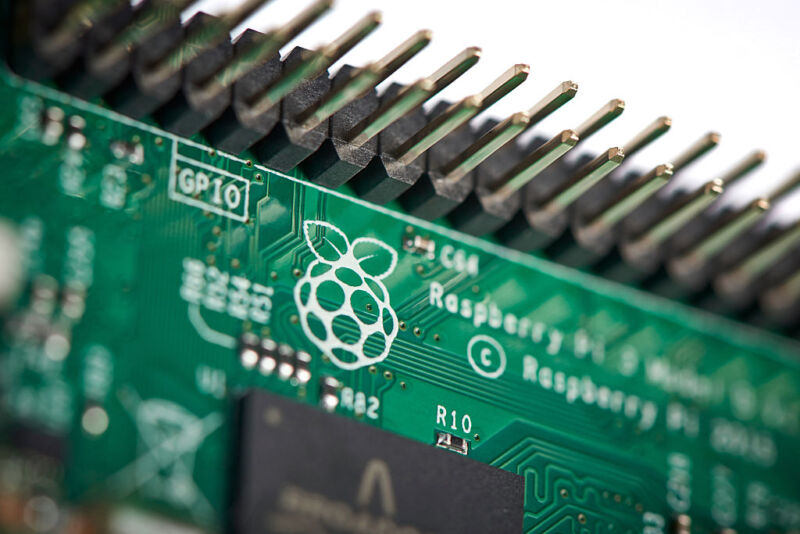
Getty Images
There will be a 1 million unit stock of Raspberry Pi products available in the month of July and every month onward until consumer backlogs are cleared, Raspberry Pi CEO Eben Upton told hobbyists in a recent community newsletter.
As reported by Tom’s Hardware on Thursday, the newsletter, said to be an “update from Eben” (screenshot via Tom’s Hardware here), promises to assuage customer demand after small businesses were favored over individual consumers during the pandemic-fueled silicon shortage.
Upton’s message reportedly reads:
We expect to sell over 600,000 units in May, 800,000 units in June, and from July onward, we are able to sustain million-unit months for as long as is necessary to clear our remaining customer backlogs and return to free availability.
This is despite the approximately 800,000 units shipped in Q1, the company’s “worst quarter since 2015,” according to the newsletter.
Stock is apparently being resurrected with the help of Sony, which is stockpiling the “non-silicon elements of” Raspberry Pi’s bill of materials, Upton said. Sony has sold Raspberry Pi image sensors since 2016 and bought a minority stake in the company in April. Raspberry Pi now has an 11-year manufacturing contract with Sony, and in a May interview with Jeff Geerling, Upton said that Sony now manufactures “every core Raspberry Pi product.”
Critically, Q2 2023 has brought “rapid recovery in the silicon supply.” Now, Upton is feeling rather optimistic and predicted that more Raspberry Pi single-board computers and modules will sell this year than ever.
“It’s been a painful two years since shortages kicked in in 2021, but we’re confident that the shortages are behind us,” the CEO said.
Stock check
Before you get too excited about finishing that project you haven’t had the supplies to complete, let’s take a quick look at what stock looks like now, compared to what Upton most recently promised.
In the aforementioned interview with Geerling a couple weeks ago, Upton said that Zero and Zero 2 stock would start returning and also said there would be “substantial” recovery for the 3, 3B+, and 4.
As of this writing, the Zero, Zero 2 W, 3, and 3B+ are out of stock at Raspberry Pi’s listed authorized resellers. The 4 is available, though, as is the 3A+. Of course, as much as the stock has fluctuated over the past months, it’s possible that it all changes by the time this article is published.
Meanwhile, accessory availability is hit or miss, too, with the Compute Module 4, for example, unavailable at Pi resellers as of this writing.
Trying to win back hobbyists
Replenishing available Raspberry Pi units isn’t just about making money (although we’re sure that’s a huge driver as well) but also about ensuring hobbyists don’t lose their appetite for Pi.
Upton admitted to neglecting maker demand when forced to choose between supplying businesses or individuals. That choice was “the single hardest decision I’ve had to make in my business career,” Upton told Geerling in May. In hindsight, the exec would have stocked up on BCM2835 chips to help keep shelves full. But Raspberry Pi didn’t and eventually fell behind on orders, and the perception of a shortage led to people stockpiling Pis, hurting availability more, according to the CEO.
Meanwhile, supply problems in 2021 led to the Pi 4 returning to higher 2020-level pricing, despite the company originally calling the 2GB Pi 4 price cut “permanent.” The price going back up from $35 to $45 is supposed to be temporary, but as of this writing, official Pi resellers are still charging $45 for that model. $5 price bumps for Pi Zero models and Compute Modules are also still in effect.
Unreliable stock and higher prices are a lot to ask customers to stomach, especially creative ones who can scrounge up alternatives. Restoring Pi availability will be critical to ensuring DIYers remain hungry for Pi in the future.









